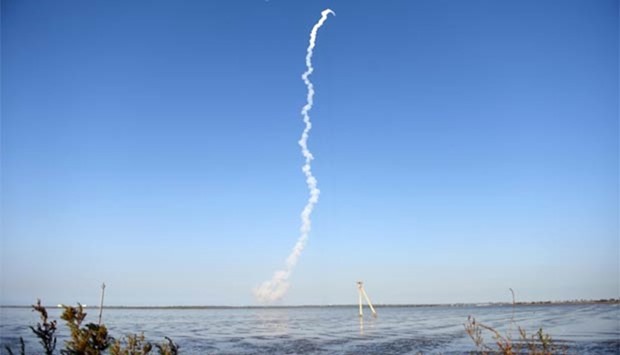India launched a communications satellite on Friday for its smaller neighbours to share, part of its efforts to build goodwill in the region and counter Chinese influence, but Pakistan said it would stay away from the project.
Prime Minister Narendra Modi, who came to office promising to strengthen ties with neighbours such as Sri Lanka, Nepal and even Pakistan, has called the satellite a gift to South Asia."The successful launch of South Asia Satellite is a historic moment. It opens up new horizons of engagement," he said soon after an Indian-made rocket carrying the satellite lifted off from the Sriharikota space centre in southern India.
So far Afghanistan, Bangladesh, Bhutan, Nepal, Sri Lanka and the Maldives have signed up to make use of the satellite. Pakistan said it was working on its own satellite and did not join.

The GSAT-9 is launched in Sriharikota on Friday.
The South Asia Satellite will offer participating countries television services and communications technology for bank ATMs and e-governance, and may even serve as a backup for cellular networks, especially in places where the terrestrial connectivity is weak, the Indian foreign ministry said.
India is trying to push back against China's expanding involvement in infrastructure building across South Asia, by offering financial and technical aid of its own.
Modi said the leaders of the participating countries had joined him in a video conference to mark the launch.
Ties with Pakistan remain difficult, with the Indian government this week accusing Pakistan of killing and then mutilating the bodies of two soldiers on patrol on the disputed Kashmir border, provoking calls for retribution. Pakistan denied the accusation.

